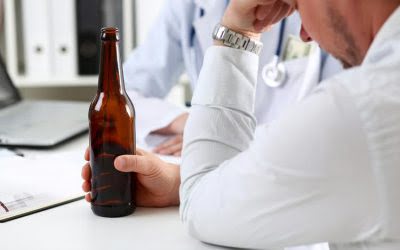Contents
In this specific exploration’s context, an eating disorder can exacerbate sugar cravings beyond alcohol abstinence itself, discomforting the individual immensely. Over time, a person can become so desensitized to the pleasure of sugar that they may increase their intake and even experience intense cravings for it. Sugar addiction is a real thing and works similarly to alcoholism. Some of them, like marijuana addiction, can specifically affect appetite. Others, like addiction to prescription sedatives, can impact one’s sleep schedule and begin to spiral into eating disorders. Still, no SUDs cause sugar cravings the way alcohol addiction does.
There is no one-size-fits-all approach to addiction treatment, as we’ve highlighted many times in the past. Why this matters is, simply, that such cases are particularly prone to addiction transfer. As recovering alcoholics crave sugar, and especially if they’re facing severe psychological symptoms, they may turn to sugar to cope. But, having established that sugar addiction can indeed occur, this can simply lead to one addiction being replaced with another.
The Sanctuary Foundation is dedicated to providing a sober living home that promotes your success. Contact us and learn how we can help you no matter what stage you are in. The staff is amazing and I couldn’t ask for a better place to just be ME.” -Tiffany W. It’s nice to have people who genuinely care about their clients…” -Robert D.
That’s why alcohol withdrawal and sugar cravings happen frequently. There are several reasons people in addiction recovery may develop a preference for sweet foods. Different substances can create various inclinations for sugar, and there is an underlying connection between addictive behaviors and sugar intake. Those struggling with alcohol dependence tend to crave sugar because both have a similar effect on the brain. Both substances cause dopamine release and feelings of happiness and pleasure.

In fact, that’s part of the reason why the expert team at Silver Maple Recovery provides healthy meals for patients. Sugary foods can help those in recovery because they affect the brain like addictive drugs. During the early days of addiction recovery, people often battle intense drug cravings and may be calorically deficient. Why are sugar cravings so common in people recovering from a substance use disorder? Consuming sugary foods leads to our brains releasing dopamine — the reward hormone that makes us feel good. Researchers have concluded this could be enough of a reason to become addicted to sugar, because we chase that happy feeling and know we can replicate it easily with the sweet things.
How to overcome sugar cravings, without turning back to alcohol.
Too much sugar can lead to gut problems, tooth decay, weight gain, and even type 2 diabetes. So instead of consuming sugar, what alcoholism treatment & alcohol rehab other options do recovering addicts have? There are plenty of ways to calm your cravings while avoiding the negatives of sugar.
This is because alcohol inhibits your body’s response to insulin, the hormone that helps regulate blood sugar levels. Especially in the early stages of detox, clinical supervision and counseling are universally beneficial. Here, having treatment providers focus on the causes of sugar cravings and assisting in managing them how to avoid alcohol withdrawal can help tremendously. But even in cases of expected sugar cravings, fueled entirely by alcohol withdrawal, psychotherapy tends to be the ideal tool. What has to differ is exactly where such therapies focus, but their merit remains the same. However, it does damage the ends of neurons, causing the aforementioned effects.
Don’t skimp on food.
Other helpful distractions might include meditation, calling a sober buddy, or taking a shower, Hank suggests. A positive distraction can help occupy your thoughts and energy, giving you something to focus on besides the urge to drink. When a craving for alcohol strikes, a good first step involves acknowledging the craving, according to Mehta. She goes on to explain that while the craving might be intense, it will lessen and pass in a few minutes. Internal triggerstypically involve memories, thoughts, emotions, or physical sensations that prompt the urge to drink.
- Through strategic marketing campaign concepts, Alyssa has established Banyan as an industry leader and a national household name.
- On top of the factors mentioned above, there are several other good reasons you may experience sugar cravings after quitting drinking.
- First, it reduces blood sugar, causing the body to seek sugar from other sources.
- But even when you don’t know anyone else trying to make a similar change, friends and loved ones can still offer emotional support.
- We specialize in providing compassionate and highly individualized substance abuse treatment that is evidence-based and outcome-driven.
As a fierce proponent of mental health services, Jess believes in the compassionate care and person-centered approach at All Points North. She works to create content that inspires clients and families to advocate for the support they deserve. Eating sweet foods can reduce the intensity of these drug cravings by giving a short dopamine boost, which could be the difference between remaining in recovery or experiencing a relapse. A chocolate bar is far less harmful than returning to active addiction. Perhaps unsurprisingly, then, sugar fundamentally functions in similar ways. As PubMed finds, sugar consumption releases dopamine in the brain, activating its reward system.
NOW WATCH: A brain scientist explains why you black out when you drink too much alcohol
Nonetheless, managing sugar cravings is by no means impossible. Addiction treatment needs to account for such hardships and can often tackle them effectively. In brief, there are three main ways to do so, each with its own subsections. Eating on a regular schedule helps prevent drops in blood sugar that can lead to consuming excessive sugar. However, it can contribute to health problems such as diabetes, obesity, high blood pressure, and elevated cholesterol levels. Of particular concern for those in recovery is that a replacement addiction can hinder the process of getting and staying sober and potentially lead to a relapse.
Sugar and other replacement rewards are not enough to break the destructive cycle of a substance use disorder. If you wish to quit substance misuse, please consider professional addiction treatment services to receive a full range of interventions that can help ensure a successful recovery. Such outlooks on rehab can champion the “mind-body meld”, helping the mind heal alongside the body through yoga and other spiritually uplifting activities. In addition, holistic therapy typically values nutritional guidance, which can similarly be of great help with sugar cravings. Glutamine, an amino acid, may also help stop sugar cravings in some people . Acamprosate also helps reduce cravings, though some research suggests it may be slightly more effective for continuing sobriety after you’ve already stopped drinking.
People with severe alcohol use disorders can consume more than 50% of their calorie intake through alcohol alone¹, leaving them at significant risk for nutrient deficiency. Because samhsas national helpline your liver spends so much time processing the alcohol, other nutrient absorption is delayed. Processed foods often include high sugar content to make them hyper-palatable.
Have Health Insurance?
“A typical craving might last for 3 to 5 minutes,” notes Christina Hanks, senior recovery coach and care team manager at Tempest. The pleasant euphoria you experience when drinking becomes a reward, one that reinforces your desire to drink in certain situations. You might eventually start craving that reward in new situations.
Once you quit drinking, your brain knows that it can receive the same dopamine rush you felt with alcohol through sweets, as they affect some of the same neural pathways alcohol does. When you eat too much sugar, you train your brain to run on sugary foods the same way it did when you were drinking. And when you go without sugar, you’ll experience withdrawal symptoms just like you did when you were struggling with alcohol addiction. Even in recovery, you may still crave sugar often because hypoglycemia takes time to reverse. Unfortunately, sugar is only a temporary fix and doesn’t serve as a healthy, long-term solution to what you’re going through in recovery.
How do you stop sugar cravings?
Whenever you would drink, the alcohol would release a rush of dopamine that would make you feel good. When struggling with hypoglycemia, you’re left with symptoms like irritability, aggression, headaches, dizziness, confusion, lack of concentration and impulsive decision-making. Your body needs to right itself as quickly as possible, leading to sugar cravings. A replacement addiction is when you quit one addictive behavior but feel like you need to replace it with something else. In this case, your mind and body are tempted to replace alcohol with sugar. As an essential healthcare provider, We are open and supporting those in need of addiction treatment at all locations.

Recent Comments